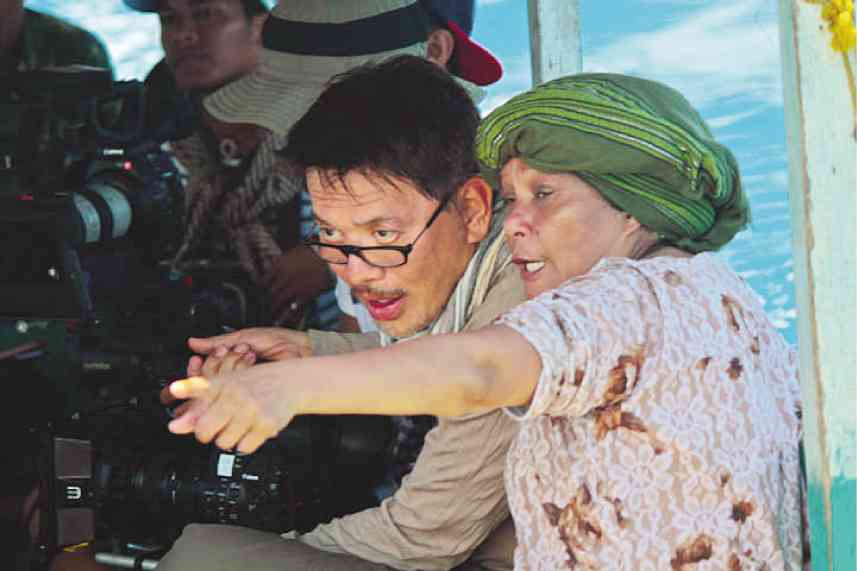Brillante Mendoza: Making films on a limited budget
“There are many ways to make a movie on a limited budget without compromising the filmmaker’s vision,” said Brillante Ma. Mendoza, award-winning independent director.
Mendoza has a string of award-winning movies under his belt, most notably “Kinatay,” which won for him the best director award at the prestigious 2009 Cannes International Film Festival in France.
Maximizing a small budget has always been the biggest challenge for an indie filmmaker, said Mendoza. “You need alternative ways to achieve what you want because you don’t have a big production company backing you up,” he said in an interview at the office of Center Stage Productions, the film outfit he owns, in Mandaluyong City.
Mendoza explained: “A lot of money is wasted on a film that lacks sufficient preparation prior to shooting. Or because there was no brainstorming, or nobody minded the logistics. To avoid wasting resources, I allot ample time to pre-production work.”
His pre-production stage usually lasts two to three months, Mendoza said. “That’s when I lay out the plans, choose the actors and hire my staff and crew. This is also when I scout for locations and rehearse with the cast, if needed.”
Article continues after this advertisementWhen filming gets underway, Mendoza said, “Everyone knows exactly what is expected of them, and everything the director needs has been prepped. He need not extend shooting days.”
Article continues after this advertisementSmooth editing
Mendoza added: “If all things work well during preprod and filming, post-production—assuming you have set aside funds for it—will be a breeze. Since you got enough material from 10 to 15 shooting days, you can expect editing to be smooth.”
The filmmaker from San Fernando, Pampanga took up Advertising Arts at the College of Architecture and Fine Arts at the University of Santo Tomas. Aside from his victory in Cannes, Mendoza bagged the best director award at the 2012 Asia Pacific Screen Awards in Australia for “Thy Womb,” and the best film honors at the 2009 Dubai International Film Festival for “Lola,” and at the 2008 Durban IFF for “Foster Child.”
Asked what makes his films stand out in international competitions, Mendoza said, “I guess it’s the stories that I choose to tell, and how they are delivered.”
Mendoza, who had 12 of his films (out of 19) included in international derbies, said he still had a hard time telling which themes would make it big in tilts abroad. “A film on poverty will not necessarily make you win. I was once part of a jury that made a light romantic film win. It won…because it showed how skillful the filmmaker was in weaving scenes together to create a beautiful story. This is also something that a filmmaker should consider. Your decisions shouldn’t be influenced by what you think people running festivals are interested in.”
Ultimately, Mendoza said, a filmmaker should not make movies with the aim of winning awards. “I get turned off when people say that a certain film is ‘pang-Cannes’ or ‘pang-Berlin.’ How do you know? Your failure to make it to Cannes doesn’t mean your movie is bad. Most festival selection committees have only eight members who watch thousands of entries. What if your film gets played when they’re already tired and sleepy?”
Showcases
Festivals are merely avenues to showcase films, he stressed. “They run for only a week, and for a very limited audience, even in celebrated events like Cannes or Berlin. I’m now more focused on having my films distributed in other regions of the world. You go to festivals because prospective producers and distributors attend them, too. I work hard on making sure my films are well-made. If they are good, people will come to watch them.”
